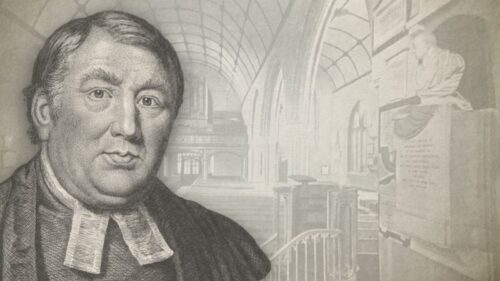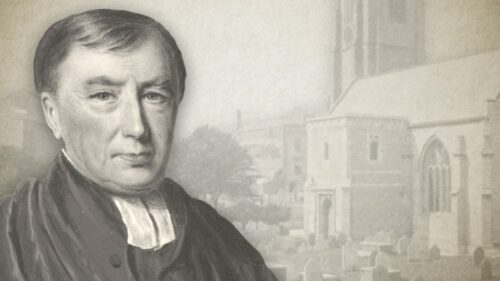
July 14—Morning Devotion
“And I only am escaped alone to tell thee.”—Job 1:19
My soul, is there nothing in this account which the messenger to Job gave concerning himself which suits thy case and circumstances? Nay, mayest thou not in a great variety of ways, both in providence and grace, adopt similar language, in which thou art escaped alone to tell? Pause! look back to thy boyish days. Nay, look further back, even to the birth, and to the womb; for had not the Lord carried thee from thence, surely from the womb wouldest thou have died and given up the ghost. And what was thy childhood, but years of perils and dangers, in which multitudes dropped all around thee, so that thou mightest say, while contemplating them, “and I only am escaped alone to tell thee?” And where are numbers with whom the stages of thy youth, and years at school were spent? Where are they? May it not here again be said, “And I only am escaped alone to tell thee?” Go on, and trace the wonderful history in the eventful path of riper years: through what sicknesses, pains and deaths hast thou passed; and mayest thou not, my soul, here again cry out,” And I only am escaped alone to tell?” Oh the wonders of distinguishing love, even in common providences, towards his people, before that the highlyfavoured objects have any consciousness how that love is watching over them, and whereby they are preserved to the day of their calling! Who shall count the sum of distinguishing mercy, in preserving and upholding providences, during the whole of an unconverted state! My soul, hadst thou died in any one of these perilous seasons, and how very near sometimes hath death seemed, the language of Job’s messenger would not then have been thine as it is now; “And I only am escaped alone to tell thee.” Pause once more. Art thou now, my soul, indeed escaped to tell of converting grace? Canst thou now look round, and amidst the dying and the dead in trespasses and sins, unawakened, unconcerned, unregenerated; canst thou indeed say, “And I only am escaped alone to tell thee!” Oh then, my soul, proclaim with earnestness the glorious truth. Invite all, as far as thy sphere of information can reach, as if thou, and thou alone, weft escaped to tell of the wonders of redeeming love; and let thy daily language be: “Oh come hither, and hearken, all ye that fear God, and I will tell you what he hath done for my soul.”
Robert Hawker (1753-1827) was an Anglican (High-Calvinist) preacher who served as Vicar of Charles Church, Plymouth. John Hazelton wrote of him:
“The prominent features…in Robert Hawker's testimony…was the Person of Christ….Dr. Hawker delighted to speak of his Lord as "My most glorious Christ.” What anxious heart but finds at times in the perusal of the doctor's writings a measure of relief, a softening, and a mellowing? an almost imperceptible yet secret and constraining power in leading out of self and off from the misery and bondage of the flesh into a contemplation of the Person and preciousness of Christ as "the chiefest among ten thousand and the altogether lovely." Christ and Him crucified was emphatically the burden of his song and the keynote of his ministry. He preached his last sermon in Charles Church on March 18th, 1827, and on April 6th he died, after being six years curate and forty-three years vicar of the parish. On the last day of his life he repeated a part of Ephesians 1, from the 6th to the 12th verses, and as he proceeded he enlarged on the verses, but dwelt more fully on these words: "To the praise of His glory Who first trusted in Christ." He paused and asked, "Who first trusted in Christ?" And then made this answer: "It was God the Father Who first trusted in Christ."
Robert Hawker on the Biblical Covenants (Complete)
Robert Hawker's Poor Man's Morning Portions






